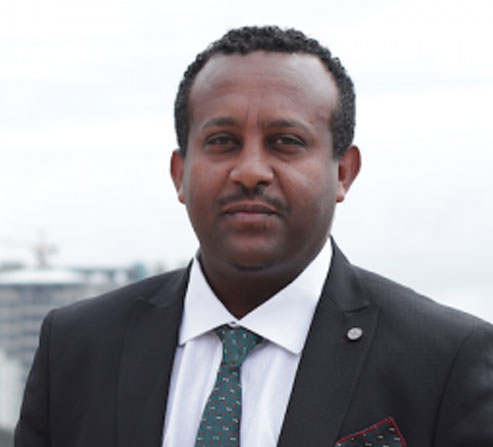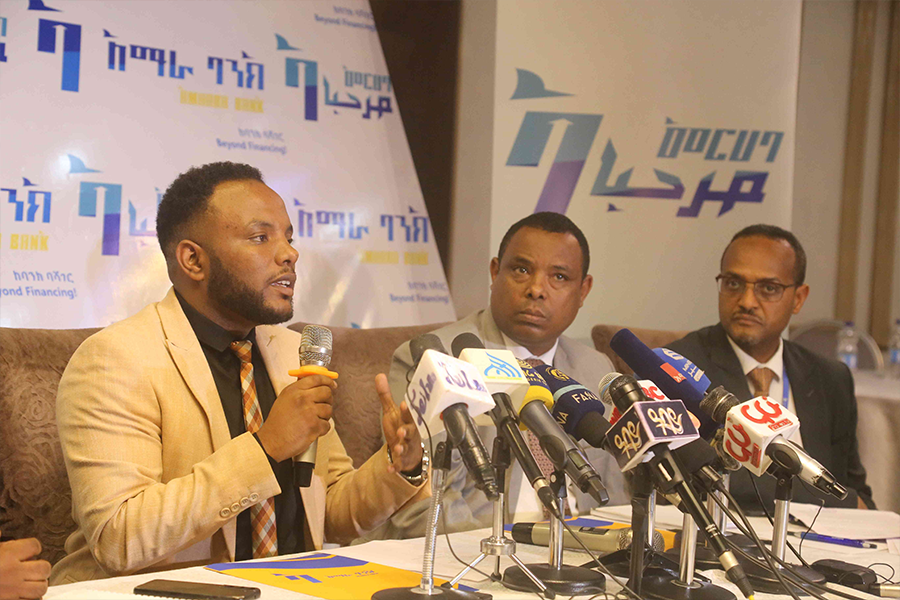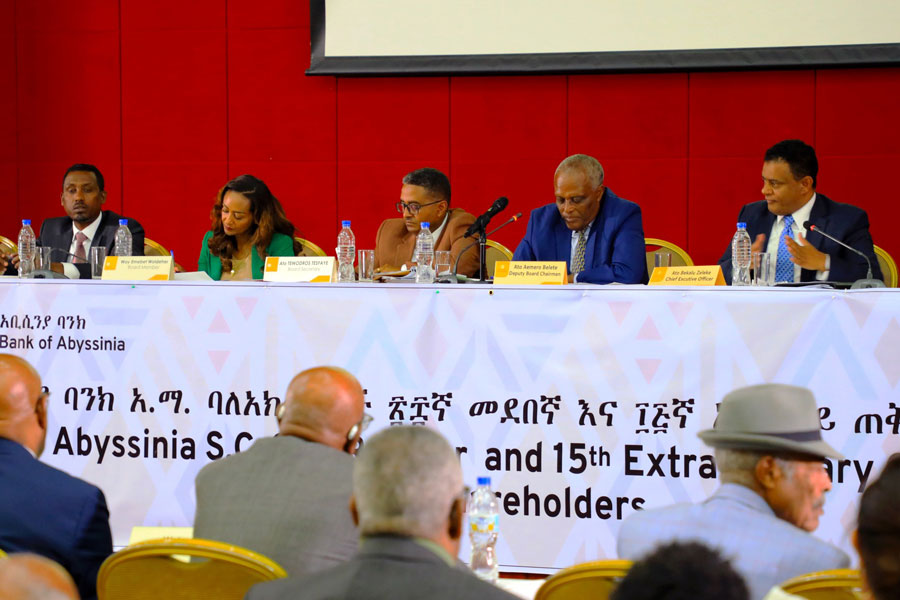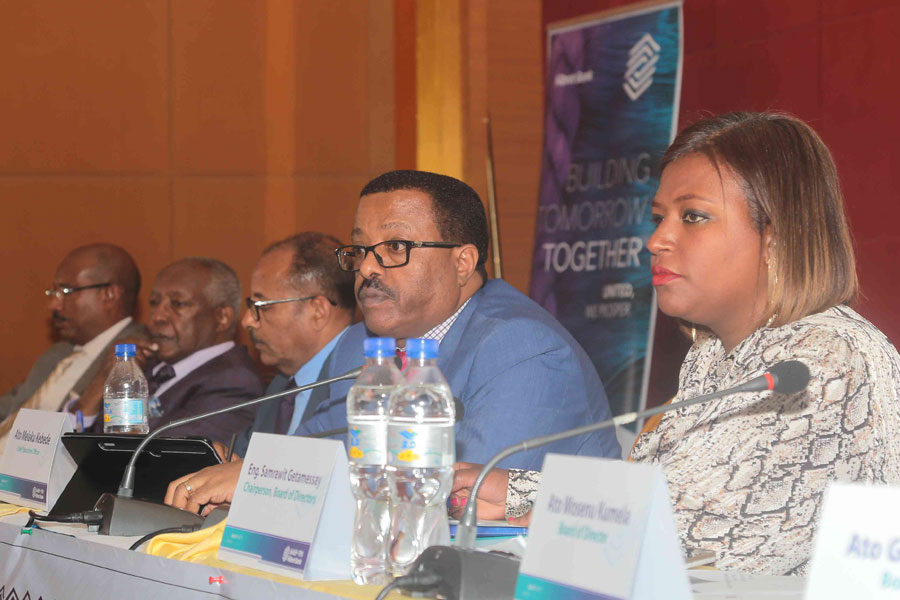
Commentaries | Feb 25,2023
Companies operating in industrial parks can transact in foreign currency while selling and buying raw materials with each other beginning this month, according to a new directive issued by the National Bank of Ethiopia (NBE).
The new directive was issued two weeks ago to enable investors to buy or sell raw materials or inputs in foreign currency when they are manufactured by companies that operate in any of the industrial parks. The purchaser will settle the payments from its foreign currency retention account.
Signed by Governor Yinager Dessie (PhD), the directive went into effect on February 4, 2019.
“It is found necessary to support the strategy of the government by creating smooth operation in industrial parks by addressing the emerging needs of investors, particularly that of foreign investors in industrial parks,” reads the directive.
The new directive also enables employers at the industrial parks to pay their non-national employees in foreign currency. The non-national employees are as well allowed to open foreign currency account at banks operating within the industrial parks.
The directive further privileged the non-national employees to transfer forex from their accounts to accounts abroad. But the national bank has set a limit on the foreign currency account of a non-national employee to be credited to the maximum of the employees’ net monthly salary.
To facilitate the process, commercial banks operating in the industrial parks are allowed to issue an interim export permit to an investor upon the summations of all export documents to sell or buy products as raw material.
The National Bank of Ethiopia’s headquarters stands near National Theatre.
Before the issuance of the directive, companies operating in the industrial parks were facing challenges in making transactions.
Abebe Abebayehu, a commissioner at the Ethiopian Investment Commission, states that the new detective is one of the reforms to solve problems encountered by companies in industrial parks.
“These kinds of innovative approaches could help industrial parks to become successful,” Abebe told Fortune.
Chargeurs Fashion Technologies Plc, a French-based company that invested two million dollars and became operational in 2017, is one of the beneficiaries.
Producing and supplying interlining, a material used as an extra lining between the ordinary lining and the fabric of a garment, Chargeurs Fashion supplies the product to companies operating in the parks.
“We import the raw materials in foreign exchange and could not sell them in local currency as we are indirect exporter companies,” said Hibret Lemma, managing director of the Chargeurs Fashion, whose company hires 25 employees and manufactures 24,000 linear meters of interlining a day.
For the first eight to nine months, the company was selling its products in a credit arrangement as it could not accept payments in foreign currency, according to Hibret.
Last year in June, Chargeurs Fashion and JP Textile, a Chinese company, were given a waiver from the Bank by a letter to sell their products in forex but only for those operating inside the Hawassa Industrial Park.
“Now it is a relief for us and for other foreign companies planning to invest in the country,” Hibret told Fortune.
Along with Chargeurs Fashion, four other companies operating in Hawassa Industrial Park trade raw materials with each other. JP Textile, JAS Holdings, which produces packaging materials and another United Kingdom-based company that produces labels are among the beneficiaries.
Located in Hawassa, the seat of Southern Nations, Nationalities & People’s Regional State, the Park encompasses an area of 1.3 million square metres, of which 300,000Sqm is occupied by sheds. It hosts 52 sheds designated for textile and apparel manufacturing and is considered the flagship park of the country.
Currently, there are six state-owned operational industrial parks, while five are in the pipeline. To build the 11 industrial parks, the government has invested 1.3 billion dollars.
In addition to the government-built parks, there are six privately-owned industrial parks that are operational, with one more under construction.
In the first seven months of the current fiscal year, operating industrial parks have generated 81.4 million dollars from exports. Companies in Hawassa, Eastern and Bole Lemi industrial parks were the largest exporters.
Zereyaqob Belete, the managing partner of Nexus Investment Solution, a decade-old investment consultancy, applauds the government’s move in issuing the new directive.
“It will motivate other foreign companies to invest in the country,” said Zereyaqob.
In previous years, companies were investing in Ethiopia attracted by the economic growth of the country, which was in the double digits, according to Zereyaqob. This is no longer the case, as the economic growth has dropped to seven percent, he added.
“New companies will invest in the country looking at the success of the already operational companies,” Zereyaqob said.
He further recommended that local companies and investors have to be active in investing in industrial parks with the assistance of the government.
PUBLISHED ON
Feb 23,2019 [ VOL
19 , NO
982]

Commentaries | Feb 25,2023

Radar | Sep 23,2023

Radar | May 15,2021

Radar | Dec 29,2018

Radar | Mar 18,2023

Radar |

Fortune News | Oct 24,2020

News Analysis | Dec 08,2024

Fortune News | Feb 04,2023

Fortune News | Jun 01,2024

Dec 22 , 2024 . By TIZITA SHEWAFERAW
Charged with transforming colossal state-owned enterprises into modern and competitiv...

Aug 18 , 2024 . By AKSAH ITALO
Although predictable Yonas Zerihun's job in the ride-hailing service is not immune to...

Jul 28 , 2024 . By TIZITA SHEWAFERAW
Unhabitual, perhaps too many, Samuel Gebreyohannes, 38, used to occasionally enjoy a couple of beers at breakfast. However, he recently swit...

Jul 13 , 2024 . By AKSAH ITALO
Investors who rely on tractors, trucks, and field vehicles for commuting, transporting commodities, and f...

Nov 1 , 2025
The National Bank of Ethiopia (NBE) issued a statement two weeks ago that appeared to...

Oct 25 , 2025
The regulatory machinery is on overdrive. In only two years, no fewer than 35 new pro...

Oct 18 , 2025
The political establishment, notably the ruling party and its top brass, has become p...

Oct 11 , 2025
Ladislas Farago, a roving Associated Press (AP) correspondent, arrived in Ethiopia in...